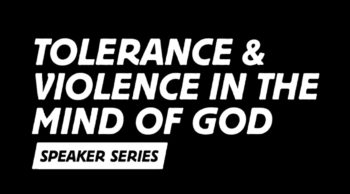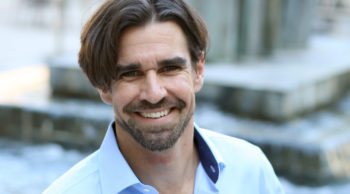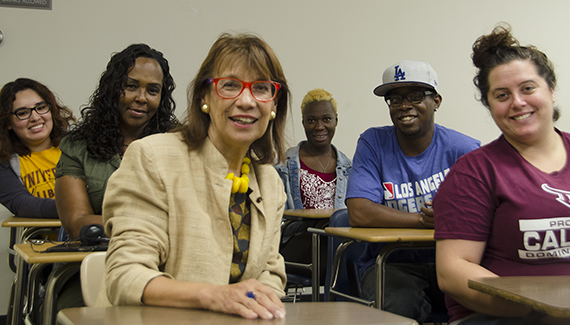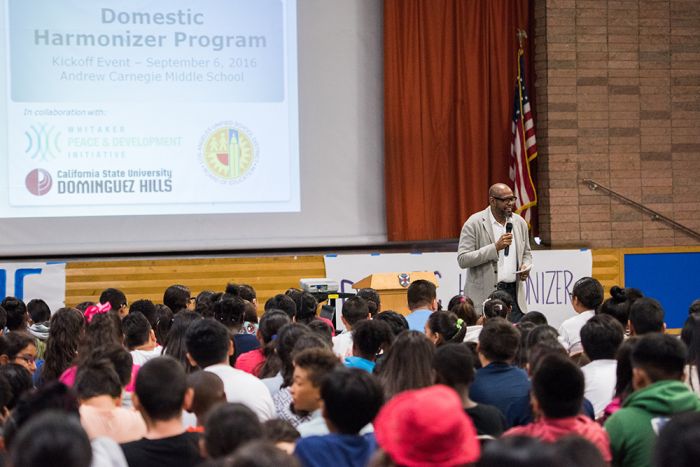“Tolerance and Violence in the Mind of God,” California State University, Dominguez Hills (CSUDH) semester-long speaker series exploring the connection between religion and violence, solidarity, peacebuilding, and combating terrorism, kicks off Feb. 7 with professor and author Mark Juergensmeyer. Juergensmeyer is a professor of sociology and director of global and international studies at the University of California, Santa Barbara. An expert in religious violence, conflict resolution and South Asian religion and politics, Juergensmeyer is the author of 22 books including, “Terror in the Mind of God: The Global Rise of Religious Violence” (University of California Press, fourth edition ... Read More
Conflict Resolution
CSU Dominguez Hills Master’s Student Scott Martin Named Rotary Peace Fellow
Scott Martin's unique blend of talent, ambition, and compassion, and his desire to use those traits to help others, has earned him the 2017 Rotary Peace Fellowship and the opportunity to study in the Rotary Peace Centers program at Chulalongkorn University in Bangkok, Thailand, where he will train to become an “agent for peace.” “I was shocked and pretty humbled when I got the fellowship. I've never been to Thailand before, so it will be a completely new experience for me,” said Martin, who is earning his master's degree in Negotiation, Conflict Resolution and Peacebuilding at California State University, Dominguez Hills (CSUDH). “Some of the larger questions I have now are around ... Read More
International Leaders Discuss Conflict Resolution with Students
J. Steven Rhodes, former U.S. ambassador to Zimbabwe, and Katherine Clerides, daughter of the late President Glafcos Clerides of Cyprus, were on campus last month as visiting scholars in the Negotiation, Conflict Resolution and Peacebuilding (NCRP) program. The leaders spent one to four days on campus, meeting with faculty and lecturing in NCRP classes. “NCRP speakers bring a vast wealth of experience that they share with our students,” said professor and NCRP Director Brian Jarrett. “They share the lessons that they often had to learn the hard way, and students can benefit from these experiences so when they are in practice out in the world, they are ready for such situations, ethical ... Read More
CSUDH and Whitaker Initiative Teach Students How to Solve Conflict
To resolve a personal conflict, a middle school student might turn to a family member, a friend, or a teacher. Sometimes students also seek support from each other through a school program. This is the goal at Andrew Carnegie Middle School in Carson, California where students are taught to manage and solve conflict. To acquire the skills necessary to teach youth how to manage and resolve conflict, the teachers at Andrew Carnegie Middle School are being trained through the Domestic Harmonizer Program. This program was developed by California State University, Dominguez Hills (CSUDH) and the Whitaker Peace & Development Initiative (WPDI), an international non-profit organization founded ... Read More
Forest Whitaker, CSUDH Program to Teach Conflict Resolution in Schools
Today at a school-wide assembly at Andrew Carnegie Middle School, artist and social activist Forest Whitaker–the Founder and CEO of the Whitaker Peace & Development Initiative (WPDI) and UNESCO Special Envoy for Peace and Reconciliation–officially launched the Domestic Harmonizer Program with California State University, Dominguez Hills (CSUDH). Andrew Carnegie Middle School is in the Los Angeles Unified School District (LAUSD) and currently enrolls 915 6-8th grade students, all of whom will participate in the program. The Domestic Harmonizer Program is an innovative initiative designed by WPDI and CSUDH's Negotiation Conflict Resolution and Peacebuilding program and College of ... Read More




